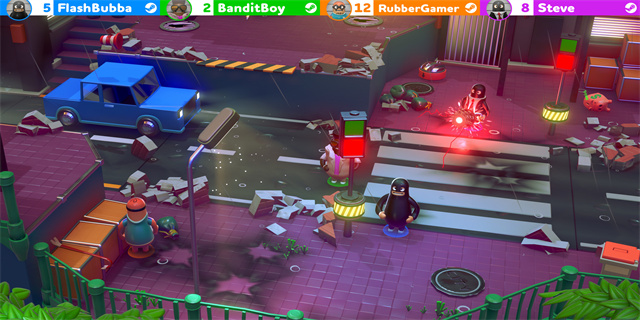The Art of Voice Acting in Dota 2
In the world of Dota 2, heroes come to life not only through their abilities and animations but through their voices as well. The art of voice acting in Dota 2 is a crucial element that brings immersion and personality to the game. Let's take a look at the various aspects of Dota 2's English voice acting and the people behind it.
The Voices Behind the Heroes
Dota 2 has a vast array of heroes, each with their own distinct personalities, backgrounds, and voices. From the booming voice of Axe to the sarcastic quips of Puck, the cast of Dota 2's voice actors have created a diverse and memorable roster of characters. Some of the most notable voice actors in Dota 2 include Jon St. John (the voice of Axe), Jim Cummings (the voice of Storm Spirit), and TJ Ramini (the voice of Kunkka).

It's interesting to note that several of Dota 2's voice actors have a background in theatre, bringing a sense of theatricality and grandeur to their performances. For instance, voice actor John Patrick Lowrie (the voice of Pudge) has a degree in drama and has even performed on Broadway.
The Importance of Localization
Dota 2 is a global game, with players from all around the world. As such, valve has made an effort to provide voice acting for each hero in numerous languages. This not only allows players to experience the game in their native language but also creates a sense of cultural connection to the characters. Since the nuances of language and humor can be lost in translation, Valve has even gone as far as hiring localization teams to ensure that each hero's voice acting is appropriately represented in each language.

For example, Dota 2's Mandarin localization team had to come up with unique translations for several heroes due to the intricacies of the Chinese language. The hero Axe's catchphrase, \"Axe is happy to kill!\" is translated as \"Axe loves to fight!\" in Mandarin, which still captures the essence of the hero's personality while being culturally appropriate.
The Future of Dota 2's Voice Acting
As Dota 2 continues to evolve and grow, it's likely that we'll see new heroes added to the game, each with their own unique voice. Additionally, as Valve continues to expand into new markets, we may see more languages added to the game's localization efforts. The voice acting in Dota 2 has come a long way since the game's initial release in 2013, and it will undoubtedly continue to be a crucial aspect of the game's immersion and character in the future.
In conclusion, Dota 2's English voice acting is an essential part of what makes the game so enjoyable and immersive. The talented voice actors behind each hero, the effort put into localization, and the game's expanding roster all contribute to the game's unique and beloved personality.




















